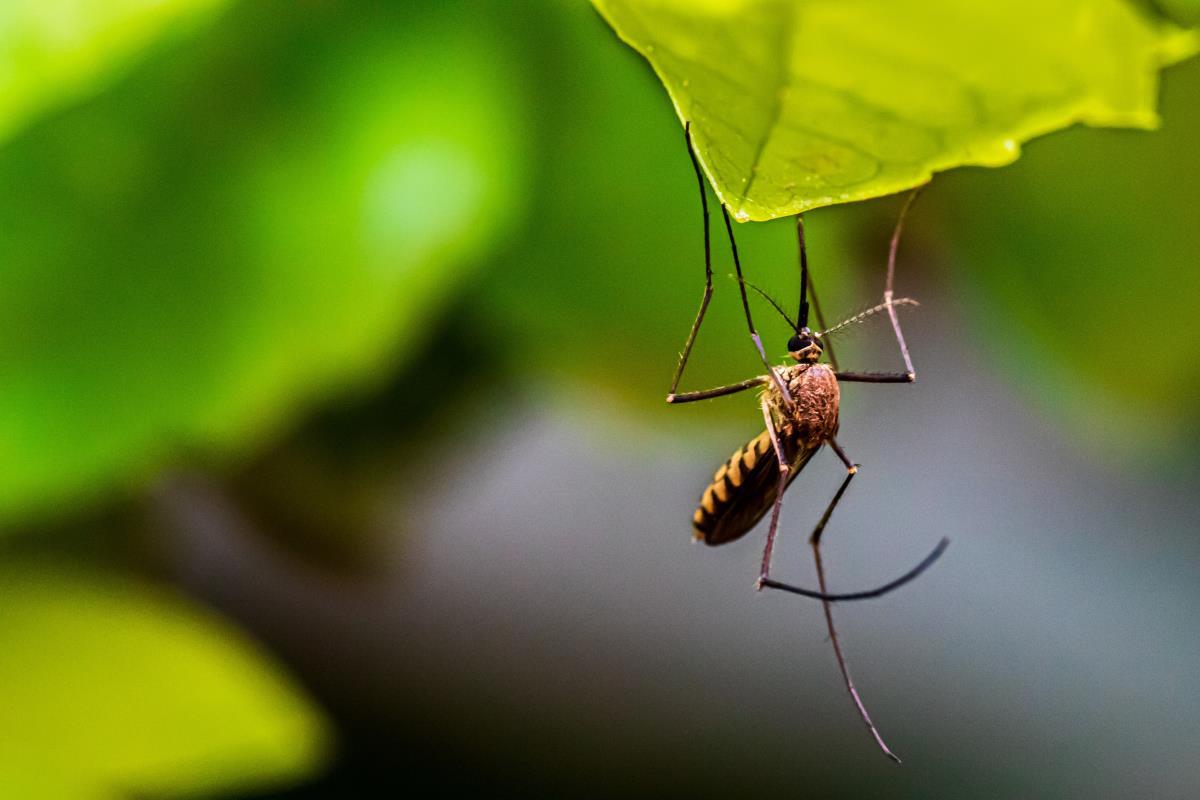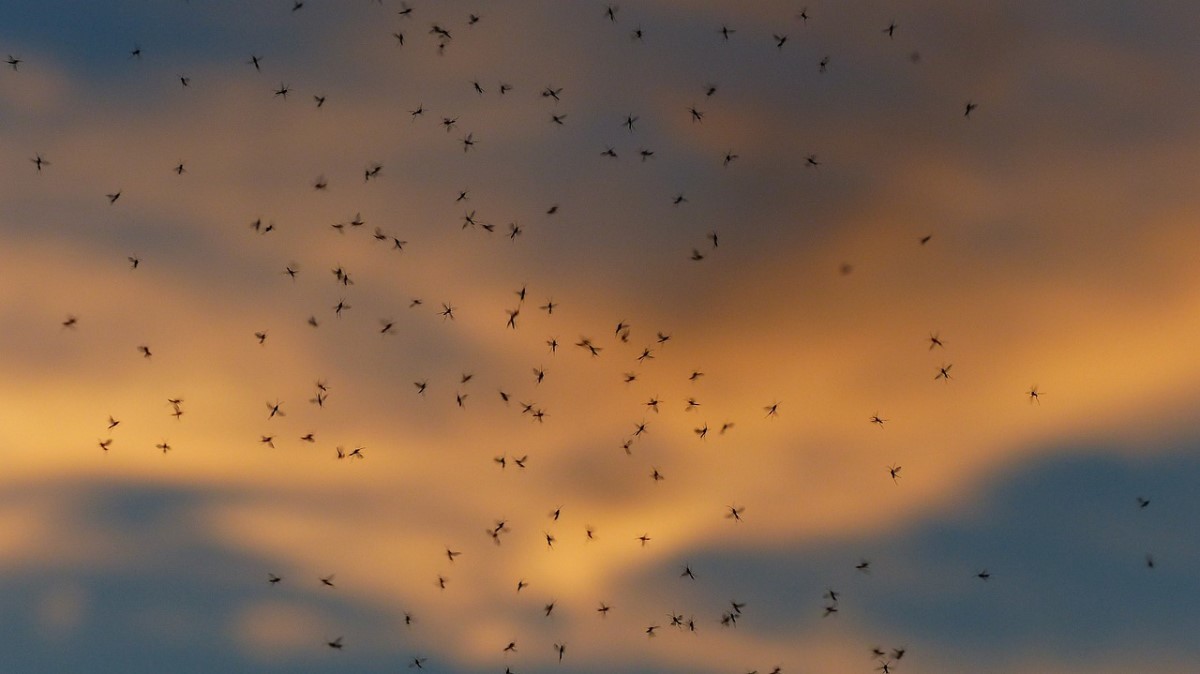The Best Insect Repellant Formulas for Mosquitoes
Reading time: 6 minutesWith over 170 mosquito species in North America alone, it is not surprising that insect repellant formulas are continuously in high demand. Culex, Aedes, and Anopheles mosquitoes are just a few of the types that plague Canadian cities. These pests proliferate rapidly, and most are fully grown within two weeks of hatching.
Since only female mosquitoes bite and they outnumber males four to one, it’s essential to understand your options for mosquito repellants so you can enjoy your outdoor experiences. In this blog, we’re sharing some info about what to expect from mosquitoes and the most effective topical mosquito repellants you can find to help you defend yourself from these flying insects.
Understanding Mosquito Behavior
Because mosquitoes need only blood and water to survive, they gravitate to areas with marshes, ponds, or any stagnating body of water. Depending on the weather and the amount of water near or on your property, you may find it virtually impossible to spend time outdoors without investing in mosquito repellants.
Mosquitoes are highly active at dawn and dusk since sunlight damages their delicate frames, and extremely hot temperatures can lead to their quick demise. They often swarm more aggressively in the evening because they’ve waited most of the day for sustenance. However, if they become desperate for a food source, they won’t hesitate to appear during daytime hours.

Concerns About Bloodborne Pathogens
Recently, concern has developed regarding mosquitoes and the spread of blood-borne pathogens. Because mosquitoes come in contact with the blood of humans and then travel on to new victims, they can spread diseases, including certain flu strains. In addition to the itching and swelling the bites leave in their wake, this is another reason you need protection from mosquitoes.
Comparing Effective Mosquito Repellant Formulas
There are various ways to avoid mosquito bites, and insect-repellent formulas are the go-to weapon for most individuals. DEET, Picaridin, and Lemon Eucalyptus Oil are the most popular and have been used for decades. The results are similar, but each one has specific, unique characteristics.
If you are like many individuals, you probably have questions about the efficacy of these products. This may include concerns about their smell, texture, and environmental impact, making choosing the appropriate formula somewhat challenging. Fortunately, the information outlined below makes the selection process less daunting.
DEET
DEET is considered a broad-spectrum bug-repellant and is a widely tested and utilized substance. The World Health Organization (WHO) regards it as one of the most effective and reliable pest repellants. It’s even been in use since the 1950s.
Types of Topical Solutions
Many brand names use this repellant and have products in a spray or lotion form. You can also find DEET wipes which are quite popular. Although there are other forms, these three are the most common applications for DEET, and the protection provided typically lasts 6 to 13 hours.
Smell & Texture
Opinions about the smell of this product are divisive. Some consumers don’t like the smell, while others find it pleasant. Additionally, many describe its texture as “oily” or “slimy.”
You may find this product unusable if you have strong opinions about texture or aroma. On the other hand, you may find the formula’s benefits outweigh any undesirable characteristics.
Precautions
Since so many brand names use DEET, there is a range of percentages for most application types. Generally, formulas are sold under many brand names, and under most circumstances, formulas containing 10-35% percent DEET offer adequate protection.
It’s important to follow proper precautions with DEET, particularly with kids. The general recommendation for children is to use this formula at the lowest concentration, 10%.
Although this substance is considered safe, users may experience skin irritation or rash after prolonged use. If you experience any skin issues, you should stop using the repellant immediately.
Environmental Impacts of DEET
Extensive studies have proven that DEET doesn’t cause significant harm to water, soil, or air. It is worth noting that it isn’t water-soluble and may be toxic to birds, fish, and other aquatic life. However, when the chemical was found in water, its concentration was several hundred thousand times lower than the threshold that would cause negative impacts.
It is important to note that even though it's relatively safe for the environment, it can cause significant harm to plastics and synthetics. In fact, DEET can cause plastic to break down or essentially “melt,” so keep these concerns in mind.

Picaridin
Picaridin (a piperidine derivative) is a very popular alternative to DEET. You may find that the characteristics of this chemical are preferable to those of DEET. This pest repellant has been in use since the late 1990s.
Types of Application
When deciding the best Picaridin application for you and your family, you can choose between a lotion, aerosol spray, and spray-on lotion. Picaridin towelettes are also available. Protection lasts approximately 12 hours with the aerosol spray and spray-lotion, while the lotion option gives you an extra two hours of protection.
Smell & Texture
A significant difference is that a single application is believed to last longer than a single application of DEET because it has a lower evaporation mechanism. Compared to DEET, Picaridin is virtually odourless, does not attack plastics, and rarely causes skin irritation. It is still important to consider any allergic reactions you may have.
Precautions
Sometimes referred to as KBR 3023, Picaridin provides long-lasting protection from mosquito bites and is comparable to a DEET concentration of approximately 10 percent. Because picaridin is widely considered safe, you will likely find it used in 20 percent or more concentrations. Organizations such as WHO, the CDC, and the Canadian Paediatric Society generally regard Picaridin as a better choice than DEET for children and pregnant and breastfeeding women.
Environmental Impacts of Picaridin
Most experts say that Picaridin does not widely impact the environment. However, it is toxic to some fish species at high doses. The substance does bind to soil, but since it is not linked to detrimental effects, this is not considered a significant concern.
Oil of Lemon Eucalyptus
The oil of Lemon Eucalyptus, or eucalyptus citriodora oil, is an interesting alternative to DEEt and Picaridin. As its name implies, this formula is derived from an extract of lemon eucalyptus tree leaves. The highly refined leaf extract increases the concentration of the lemon eucalyptus, which occurs naturally.
Types of Application
Usually applied as a spray, the absorbent formula is unlikely to leave your skin oily or sticky, which makes it a popular natural alternative to other mosquito repellants. This product is not recommended for children under three years old, as extensive testing has yet to be completed for this age group.
Precautions
Oil of Lemon Eucalyptus has been tested alongside other pest repellants, such as DEET (the latter at about a 15 percent concentration) and was found to offer similar protection. It is worth noting that the application only lasts about six hours before you’ll need to reapply. When applied correctly, it does an excellent job of repelling mosquitoes and even deer ticks.
Smell & Texture
Oil of Lemon Eucalyptus features a naturally herbaceous odour that may remind you of a citronella candle’s fragrance. For this reason, it’s likely to be an aroma you either love or hate.
Environmental Impacts
Fortunately, the Oil of Lemon Eucalyptus is carbon negative and therefore not believed harmful to the environment.
Finally, it’s important to avoid confusing the Oil of Lemon Eucalyptus with the essential oil of the same name, as the latter has not been approved or tested as an insect repellant.
Turn to Professional Mosquito Control for the Long Haul
During the summer, avoiding mosquitoes is extremely difficult. You can take many steps to prevent infestations on your property, like utilizing mosquito repellants. An effective insect repellant can prevent bites and the discomfort that comes with them, but a mosquito repellant alone cannot eradicate an infestation on your property.
Once you’ve discovered a mosquito problem, contact Buzz Boss for a complete pest exam. We’ll explain all your options and help craft a plan that works for your budget and outdoor lifestyle.
Still got questions about the pests you might face? Check out our FAQs and reach out to chat with our pest experts.

